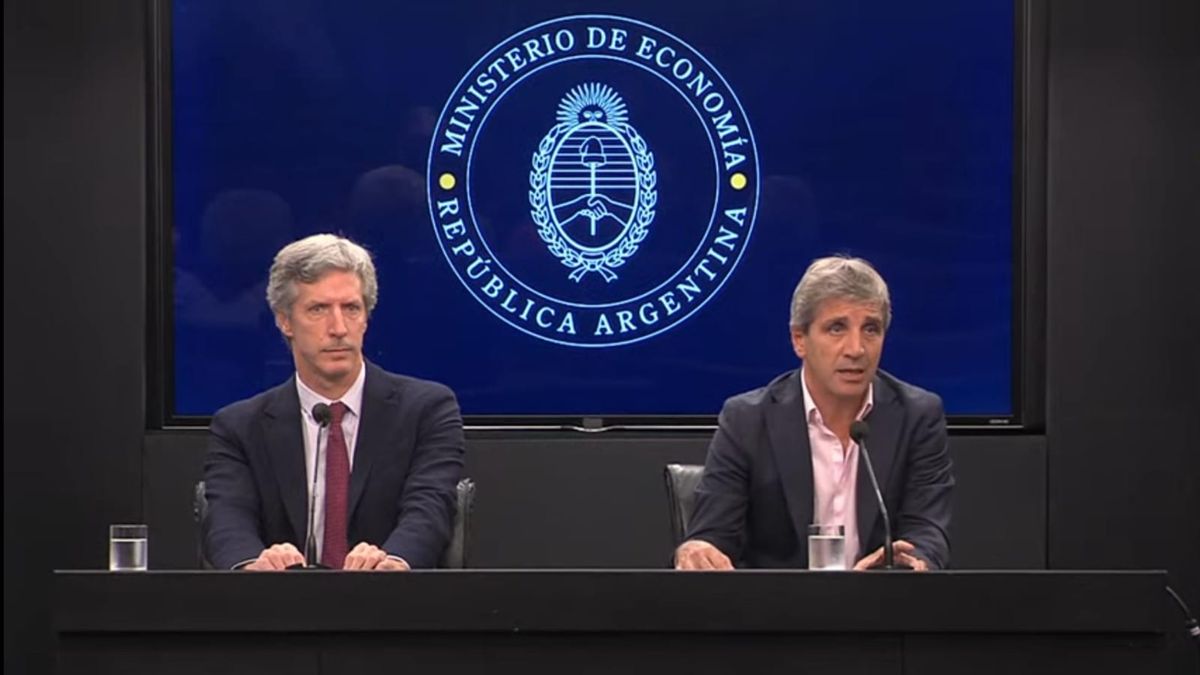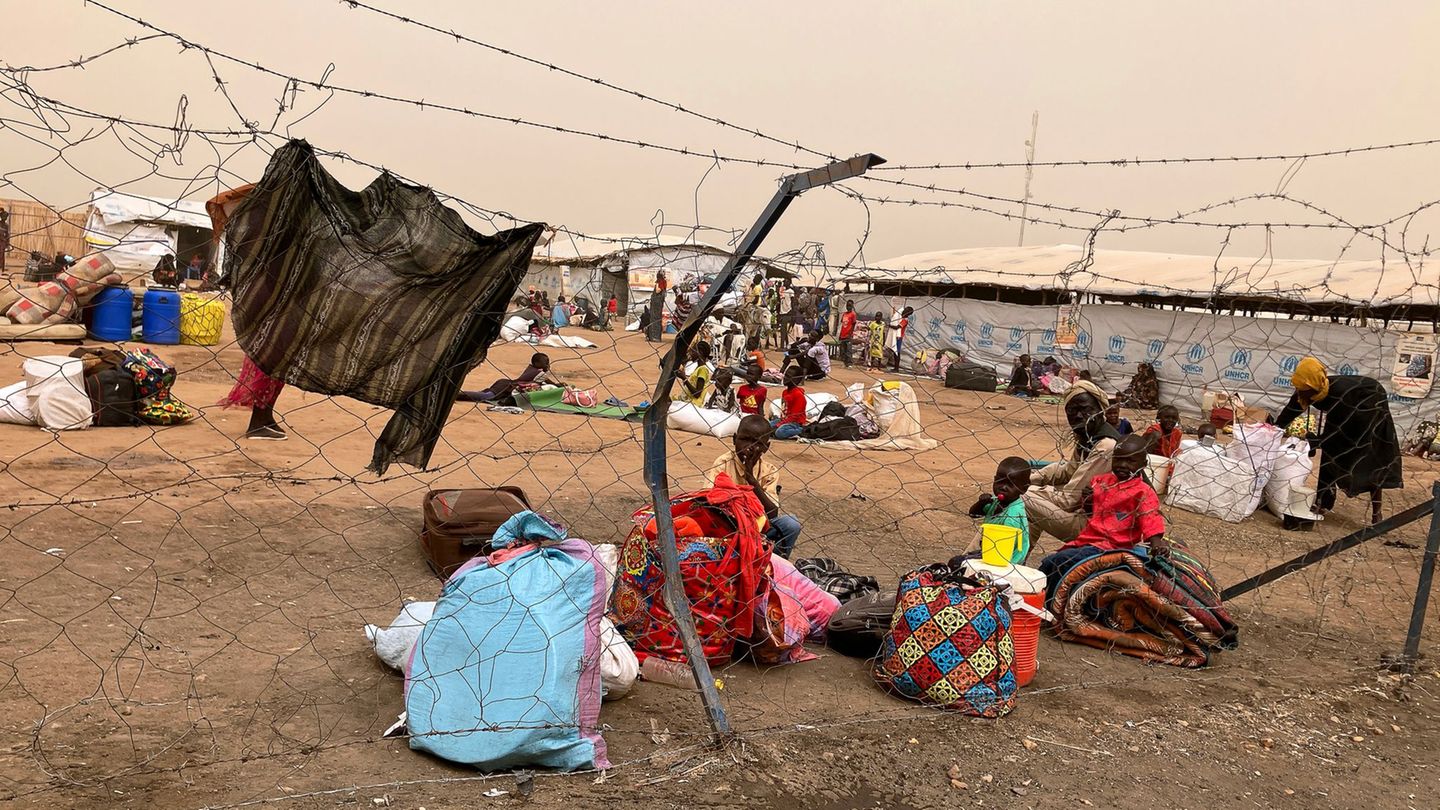“We have reached an agreement with the International Monetary Fund within the framework of the seventh review of the Extended Facilities Program“, start Luis Caputo and explained that “it is not a new agreement but ratherand the previous agreement has been revived who was down due to failure to meet goals. Refloating this agreement required a greater commitment to compensate for the loss of credibility occurred in the last two quarters.
The steps to follow, according to the minister, are that the agreement will be subject to the approval of the boards of the IMF, at the end of January. “This is going to involve a disbursement of US$4.7 billion“Caputo explained and pointed out that this amount will be used to pay capital maturities for the CAF loan taken in December and two stages committed to the Background: January and April.
In turn, the official explained that “a new agreement would have involved much more time and, given the crisis situation we received where we had to make a payment to the Fund itself a week after taking office without having the money, the most viable alternative was what we have done: get the money to pay the Fund and get the agreement revived to guarantee that there will be no surprises in the next four months.
Caputo maintained that the possibility of accessing new loans is open but that is not the Government’s intention: “We believe it is time for the country to solve its financial problems solving their underlying structural problems, which is their addiction to excess public spending and fiscal deficitwhich is ultimately what ends up generating the problems that society later suffers”.
For its part, Bausilis Clarified that “there are no changes in exchange or monetary policy. The goals are based on a reserve accumulation goal and that means that there is no inflation or monetary aggregate goal: that scheme did not change in any way.”
Embed – Announcement from the Ministry of Economy
Luis Caputo: “I am particularly interested in the omnibus law finally passing”
Asked at a press conference about his position on the omnibus law, Luis Caputo He indicated that “not only as Minister of Economy but also as an Argentine citizen I am particularly interested in the law finally being passed, because I believe that it effectively lays the foundations for the reconstruction of the country and that we should never have lost.
“Everything that is included in the law and everything that it means: it is that change that the President promised during the campaign and what is being carried out. People voted for him for that.. Today the world, and what happened to us with the negotiations with the Fund, is really looking at that. They understand that the President is going on the right path and that he has enormous courage to do shock measures initially without wasting time given the urgency and the need for changes,” the minister analyzed.
Then he added: “The question is whether many politicians are going to rise to the occasion.” “If the law did not pass“I think it’s very bad news,” he said but clarified that “that does not imply that we would return to the deficit goal of 0.9 that the previous administration had.” “Even if the law did not pass, we would exert resources in some way to comply with it,” the minister promised.
To conclude, he interpreted: “Of course To the extent that the law does not pass, the measures will be tougher“.
Market: dollar bonds grew and country risk fell
Both Caputo and Pablo QuirnoSecretary of Finance, expressed their good feelings after the meeting and held a meeting with the Chief of Staff, Nicolas Posse, to give way to the new stage. As representatives of the international organization, they were present Luis Cubeddu, deputy director of the Department of the Western Hemisphere, and Ashvin Ahuja, Head of Mission, and Ben Kelmansonrepresentative of IMF in Argentina.
The dollar bonds they shot up to almost 6% this Wednesday, January 10 and risk country wrote down his biggest daily drop in seven weeks, to break through 2,000 points again.
Once the news was known, the dollar securities recorded strong advances in the Buenos Aires stock market: those that they went up were the Bonar 2041 (+5.6%), Bonar 2035 (+4.7%), the Bonar 2030 (+4.5%); and the Global 2035 (+4.5%).
In the US, Argentine bonds closed with average increases of 1.3 dollars, with the Globales finishing better than the Bonares. In that framework, the country risk fell 4.7%or 98 units, up to 1,984 pointsas measured by JP Morgan. In this way, write down your biggest daily drop in seven weekssince November 24, 2023 (when more than 7% remained).
Sovereign securities had started the year on the wrong foot (in fact some fall up to 6.5% after the closing of this round), in line with the decline in emerging debt due to a rebound in bond rates in the US, but also due to some doubts in the market regarding the measures Government economics.
ADRs on Wall Street
For their part, the Argentine shares on Wall Street they closed with most risesin a volatile wheel in which They started off and turned around.
Among them, those who marked further progress were those of Edenor (+5.4%), Supervielle Group (+5.3%); IRSA (+4.1%); Galicia Financial Group (-3.9%); and Cresud (+3.8%).
While those that gave way were those of Adecoagro (-2%); Bunge (-1.8%), Take off (-1.7%), Globant (-0.9%), YPF (-0.9%), and View (-0.6%).
Source: Ambito




